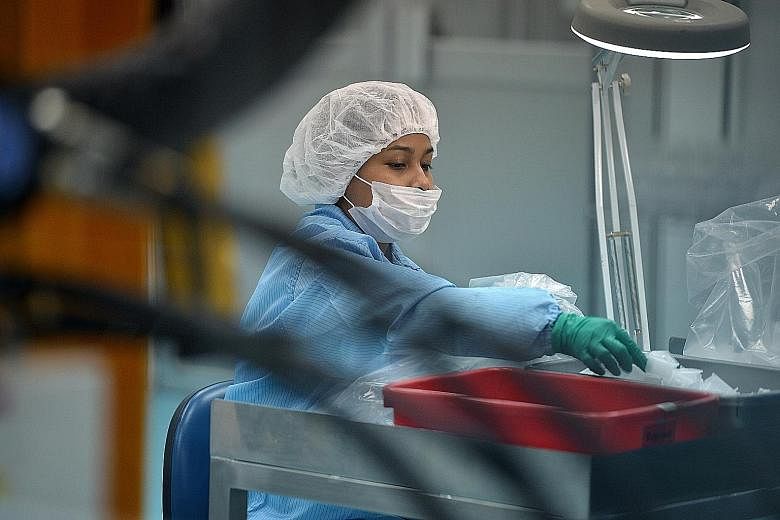Factory output contracted for the sixth consecutive month last month against a backdrop of tepid global demand and rising business costs in the manufacturing sector.
The latest disappointing data has prompted some economists to flag the risk of a technical recession, defined as two consecutive quarter- on-quarter declines in overall economic output.
The economy contracted 4 per cent in the April to June period over the preceding three months.
Economists' concerns that the pain will continue this quarter come amid a turbulent week for China, Singapore's largest trading partner. Lacklustre Chinese manufacturing data roiled global stock markets this week and raised questions over the health of the world's second-largest economy.
Singapore's latest manufacturing data, which showed output sliding 6.1 per cent last month, came in way below the 4 per cent decline forecast by economists in a Bloomberg poll.
There were broad declines across almost all factory clusters, except chemicals, with the volatile biomedical manufacturing segment suffering the biggest plunge.
Biomedical output slid 13.4 per cent last month from a year ago, due in large part to a contraction in pharmaceuticals production.
If the biomedical segment is excluded, overall manufacturing output would have fallen a slightly smaller 4.1 per cent.
Electronics, which makes up a third of manufacturing output, also faltered last month. Output fell 5.8 per cent, dragged down by weakness in the semiconductors and computer peripherals segments.
Economists say the outlook for manufacturing remains gloomy.
Bank of America Merrill Lynch economist Chua Hak Bin said a technical recession is looking increasingly likely, as worsening global conditions are weighing on the outlook for both the manufacturing and services sectors.
DBS economist Irvin Seah agreed, noting that even as manufacturing continues to flounder, the services sector, which makes up about two- thirds of the economy, "doesn't look good".
Services output already contracted by 1.1 per cent in the second quarter over the preceding three months, he noted. "This sector has only ever dipped into contraction in times of recession."
Citi economist Kit Wei Zheng said further signs of a technical recession or softening of the job market could prompt the central bank to ease its stance of a modest and gradual appreciation of the Singapore dollar at its next meeting in October.
The Monetary Authority of Singapore uses the exchange rate as its main tool to strike a balance between controlling inflation from overseas and laying the foundations for economic growth.
A stronger currency helps counter inflation by making imports cheaper in Singdollar terms, while a weaker Singdollar helps exporters whose goods become cheaper in foreign markets.
"Favourable general election results may... also facilitate a shift in policy mix towards a more growth- friendly direction," Mr Kit added.

